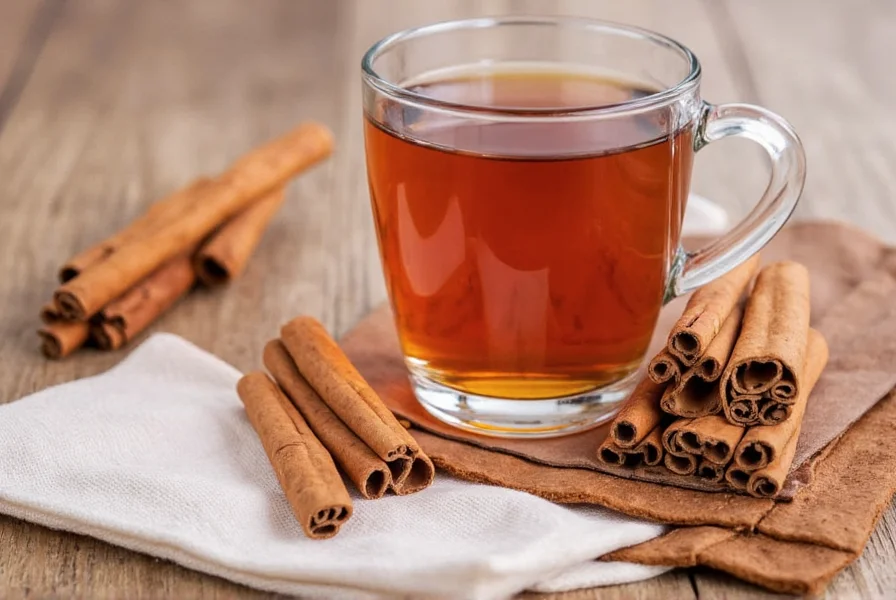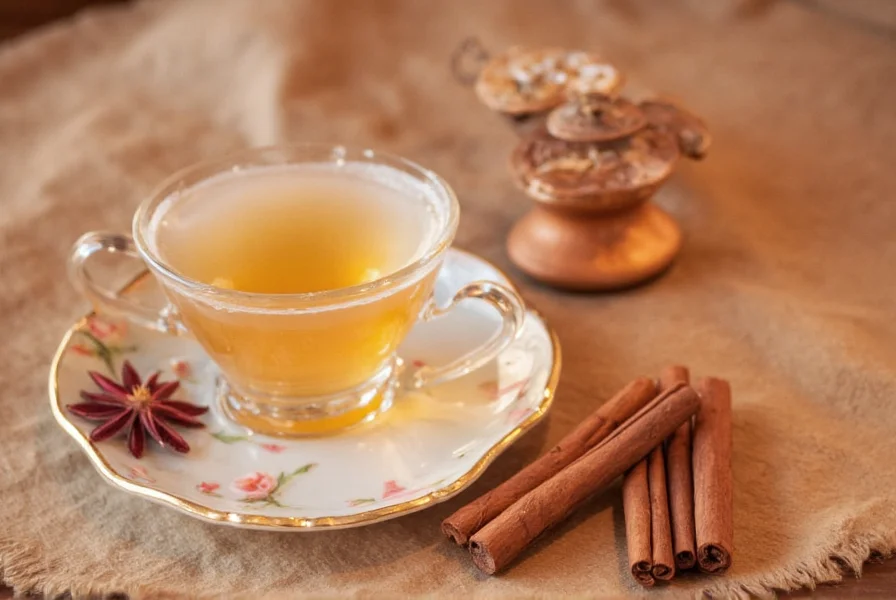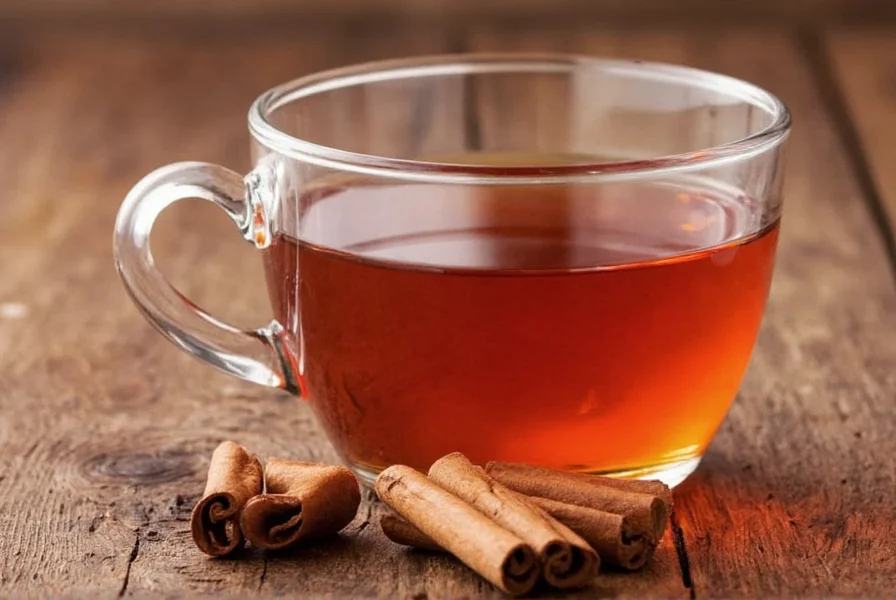For centuries, cinnamon has been valued not just as a spice but as a medicinal herb across various cultures. When steeped as tea, this aromatic bark delivers a comforting beverage with notable health properties supported by modern research. Unlike supplements, cinnamon tea provides these benefits in a gentle, bioavailable form with minimal risk of side effects when prepared properly.
What Makes Cinnamon Tea Special
Cinnamon tea isn't made from traditional tea leaves but rather from the bark of Cinnamomum trees. The two primary varieties used are Ceylon cinnamon (Cinnamomum verum), often called "true cinnamon," and Cassia cinnamon (Cinnamomum cassia), which is more common in stores. While both offer health benefits, Ceylon contains significantly less coumarin—a compound that can cause liver issues in high doses—making it the preferred choice for regular tea consumption.

Science-Backed Cinnamon Tea Benefits
Blood Sugar Regulation
One of the most well-documented cinnamon tea for blood sugar control benefits involves its effect on glucose metabolism. Multiple studies, including research published in the Journal of the Academy of Nutrition and Dietetics, indicate that cinnamon can improve insulin sensitivity and slow the breakdown of carbohydrates in the digestive tract. A 2013 meta-analysis found that cinnamon supplementation significantly reduced fasting blood glucose levels in people with type 2 diabetes.
When consumed as tea, these effects appear gentler than concentrated supplements, making it a practical addition to diabetes management protocols under medical supervision. The water-based extraction process may deliver key compounds like cinnamaldehyde and polyphenols in a more balanced ratio than supplements.
Powerful Antioxidant Properties
Cinnamon ranks exceptionally high on the ORAC (Oxygen Radical Absorbance Capacity) scale, which measures a food's antioxidant capacity. The cinnamon tea antioxidant properties come primarily from polyphenols that combat oxidative stress—a key factor in aging and chronic diseases.
| Antioxidant Compound | Concentration in Cinnamon Tea | Primary Health Benefit |
|---|---|---|
| Proanthocyanidins | High | Cardiovascular protection |
| Phenolic acids | Moderate | Anti-inflammatory effects |
| Flavonoids | Significant | Cellular protection |
Regular consumption of antioxidant-rich beverages like cinnamon tea may help reduce markers of oxidative damage in the body, potentially lowering risk for conditions associated with free radical damage.
Natural Anti-Inflammatory Effects
Chronic inflammation underlies many serious health conditions. The cinnamaldehyde in cinnamon tea for inflammation work by inhibiting inflammatory pathways at the cellular level. A 2015 study in Nutrition Research demonstrated that cinnamon extract reduced several inflammatory markers in human subjects.
Unlike pharmaceutical anti-inflammatories, cinnamon tea provides these benefits without gastrointestinal side effects, making it suitable for regular, long-term consumption as part of an anti-inflammatory diet.
Heart Health Support
Research suggests cinnamon tea heart health benefits may include improved cholesterol profiles and blood pressure regulation. A 2019 review in Oxidative Medicine and Cellular Longevity noted that cinnamon consumption was associated with reductions in total cholesterol, LDL cholesterol, and triglycerides while maintaining HDL ("good") cholesterol levels.
The combination of antioxidant and anti-inflammatory effects likely contributes to these cardiovascular benefits, potentially reducing risk factors for heart disease when incorporated into a balanced lifestyle.
How to Prepare Cinnamon Tea for Maximum Benefits
To harness the health benefits of cinnamon tea effectively, preparation matters. Here's a simple method that maximizes beneficial compound extraction while minimizing potential risks:
- Use 1-2 inches of Ceylon cinnamon sticks (preferred over Cassia for regular consumption)
- Bring 8-12 ounces of filtered water to just below boiling (about 200°F/93°C)
- Add cinnamon sticks and steep covered for 10-15 minutes
- Strain and enjoy plain or with a squeeze of lemon (avoid adding sugar to maximize blood sugar benefits)

This cinnamon tea preparation methods allows optimal extraction of water-soluble compounds while avoiding excessive coumarin release that can occur with prolonged boiling. For variety, you can add complementary ingredients like ginger (for additional anti-inflammatory effects) or green tea leaves (for enhanced antioxidant profile).
Safety Considerations and Potential Side Effects
While generally safe, understanding cinnamon tea side effects is crucial for responsible consumption:
- Coumarin content: Cassia cinnamon contains higher coumarin levels than Ceylon. Consuming large amounts regularly may affect liver function in sensitive individuals.
- Medication interactions: Cinnamon may interact with blood thinners, diabetes medications, and liver-metabolized drugs.
- Pregnancy considerations: Moderate culinary use is generally safe, but therapeutic amounts should be avoided during pregnancy.
- Allergic reactions: Rare, but possible, especially in those with sensitivities to related plants.
The European Food Safety Authority recommends keeping coumarin intake below 0.1 mg per kg of body weight daily. For most adults, this translates to no more than 1-2 cups daily of strong Cassia cinnamon tea, or significantly more of Ceylon cinnamon tea.
Cinnamon Tea vs. Other Cinnamon Forms
Understanding the differences between cinnamon tea vs cinnamon supplements helps determine the best approach for your health goals:
- Tea: Provides moderate, balanced compound delivery with lower coumarin exposure; ideal for daily maintenance
- Supplements: Deliver concentrated doses for therapeutic purposes but with higher risk of side effects
- Powder: Convenient but may contain inconsistent compound levels and higher coumarin
For most people seeking general wellness benefits, cinnamon tea preparation methods offer the best balance of efficacy and safety. The water extraction process naturally limits certain compounds while delivering others in a bioavailable form.
Integrating Cinnamon Tea Into Your Wellness Routine
For optimal results from scientific studies on cinnamon tea, consider these evidence-based recommendations:
- Consume 15-30 minutes before carbohydrate-rich meals to potentially moderate blood sugar response
- Pair with black pepper (which contains piperine) to enhance absorption of beneficial compounds
- Rotate with other herbal teas to prevent potential compound buildup
- Maintain consistent consumption rather than occasional large doses
Remember that cinnamon tea works best as part of a comprehensive approach to health that includes balanced nutrition, regular exercise, and appropriate medical care when needed.
Frequently Asked Questions
How much cinnamon tea should I drink daily for health benefits?
For most adults, 1-2 cups of Ceylon cinnamon tea daily provides optimal benefits with minimal risk. If using Cassia cinnamon, limit to 1 cup daily due to higher coumarin content. Those with liver conditions should consult their healthcare provider before regular consumption.
Can cinnamon tea help with weight loss?
While cinnamon tea alone won't cause significant weight loss, it may support metabolic health by improving insulin sensitivity and reducing blood sugar spikes after meals. Some studies suggest it might modestly increase metabolism, but these effects are subtle and work best as part of a comprehensive weight management plan.
When is the best time to drink cinnamon tea?
For blood sugar management, consume 15-30 minutes before carbohydrate-rich meals. Many people find it beneficial as a morning beverage to support metabolism throughout the day, or in the evening for its calming properties. Avoid drinking large quantities right before bed if you're sensitive to its mild stimulating effects.
Does cinnamon tea interact with medications?
Yes, cinnamon tea may interact with certain medications, particularly blood thinners (like warfarin), diabetes medications, and drugs metabolized by the liver. The coumarin content can enhance blood-thinning effects, while the blood sugar-lowering properties may amplify diabetes medications. Always consult your healthcare provider if you're taking medications regularly.
How long does it take to see benefits from drinking cinnamon tea?
Most people notice subtle effects like improved digestion within a few days of regular consumption. For blood sugar regulation and inflammation reduction, consistent consumption for 4-8 weeks typically shows measurable benefits. Maximum cardiovascular benefits may take 3-6 months of daily consumption. Individual results vary based on overall health status and lifestyle factors.











 浙公网安备
33010002000092号
浙公网安备
33010002000092号 浙B2-20120091-4
浙B2-20120091-4